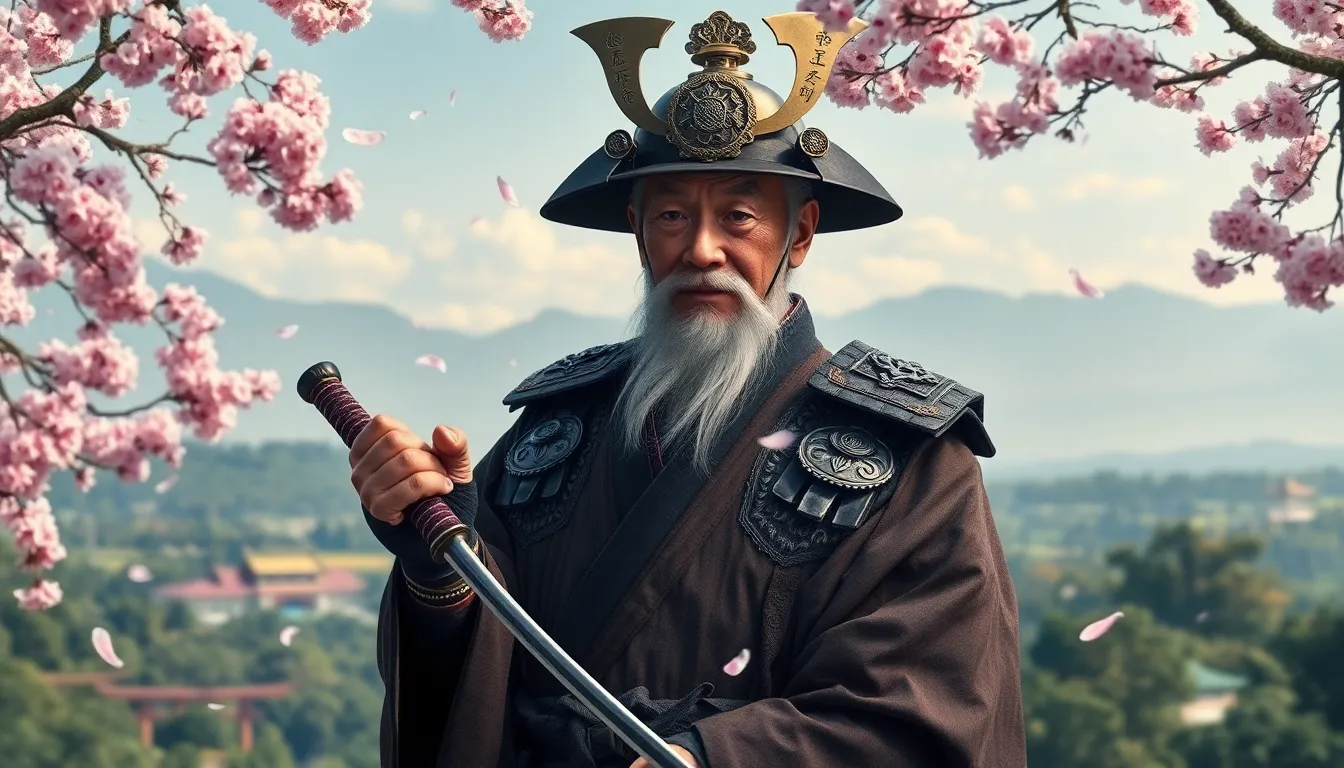In the stunning world of Ghost of Tsushima, few characters leave as lasting an impression as Lord Shimura. The wise and honorable uncle of Jin Sakai embodies the spirit of the samurai, balancing tradition with the harsh realities of war. But let’s be honest—while he’s a beacon of virtue, he’s also the kind of guy who might give you a stern lecture about honor right before you head into battle.
As players navigate the breathtaking landscapes of Tsushima, Lord Shimura stands as a reminder of the weight of legacy and duty. With his impeccable swordsmanship and a heart full of loyalty, he’s not just a mentor but also a source of moral conflict. Dive into the complexities of his character and discover why this noble warrior is more than just a sidekick in a stunning samurai saga.
Table of Contents
ToggleOverview of Ghost of Tsushima
Ghost of Tsushima is an action-adventure game set in feudal Japan during the Mongol invasion. Players control Jin Sakai, a samurai warrior, as he embarks on a quest to protect Tsushima Island. The game features an open world filled with lush landscapes, diverse environments, and intricate side quests.
Characters play crucial roles in shaping the narrative. Lord Shimura, as Jin’s uncle, symbolizes the traditional samurai code. He emphasizes honor and duty, reflecting the dichotomy between ancient values and the brutal realities of conflict. Players experience emotional turmoil as Jin grapples with his mentor’s teachings.
The combat system blends stealth and combat mechanics. Players can choose to engage in direct confrontations or adopt a more stealthy approach. This versatility allows for dynamic gameplay tailored to individual preferences. Exploration reveals various collectibles and unlocks additional storytelling opportunities.
Visual aesthetics enhance immersion within the game. The graphics showcase stunning landscapes, accurately depicting the beauty of Japan. Sound design further enriches the experience, featuring a rich soundtrack and environmental audio that creates a vibrant atmosphere.
Overall, Ghost of Tsushima offers a rich tapestry of storytelling, character development, and immersive gameplay. The game stands out not only for its action mechanics but also for its emotional depth and moral complexity. Players connect deeply with Jin Sakai and Lord Shimura, each embodying key elements of the samurai experience amidst turmoil.
Character Analysis of Lord Shimura

Lord Shimura stands as a pivotal figure in Ghost of Tsushima, encapsulating the essence of the samurai while guiding Jin Sakai through his journey. His depth as a character resonates with players, revealing his internal struggles and unwavering commitment to honor.
Background and Role in the Story
Lord Shimura occupies the role of Jin Sakai’s uncle and mentor, representing the traditional samurai values amid the Mongol invasion of Tsushima. He strives to protect their homeland and emphasizes the importance of loyalty and honor. Shimura’s character unfolds as he grapples with the realities of warfare, challenging Jin to uphold the samurai code. His experiences reflect the conflict between maintaining tradition and adapting to dire circumstances. As the narrative progresses, he transforms from a guiding figure into a complicated source of moral conflict, highlighting the themes of loyalty and sacrifice inherent in the game.
Relationship with Jin Sakai
The bond between Lord Shimura and Jin Sakai forms the emotional core of the game’s narrative. Jin views Shimura as a father figure, embodying wisdom and strength. Their relationship, however, is marked by contrasting philosophies: Shimura champions the samurai code while Jin explores unconventional methods to defeat the Mongols. Disagreements surface as Jin’s journey unfolds, leading to emotional turmoil for both characters. This conflict illustrates the generational divide within samurai traditions, deepening the narrative’s impact. Their interactions evolve, showcasing both respect and tension, ultimately shaping Jin’s identity as a warrior.
Themes Represented by Lord Shimura
Lord Shimura embodies several significant themes throughout Ghost of Tsushima. His character illustrates the complexities of loyalty, honor, and the struggle between tradition and innovation during tumultuous times.
Honor and Duty
Honor and duty are central to Lord Shimura’s character. He upholds the samurai code, emphasizing the need to protect Tsushima Island and its people. His unwavering commitment to these principles shapes his decisions and actions. Throughout the story, Shimura’s belief in honor drives him to confront adversities head-on. He serves as a beacon for Jin Sakai, representing the ideals every samurai strives to achieve. This dedication, however, complicates their relationship as Jin begins to question traditional values in the face of changing circumstances. As the narrative progresses, Shimura’s strict adherence to duty ignites conflict, forcing Jin to navigate the consequences of his own choices.
Tradition vs. Change
Tradition versus change highlights the divide between Lord Shimura and Jin Sakai. While Shimura reveres the samurai lifestyle, Jin’s experiences with the Mongol invasion challenge these long-held beliefs. The contrasting philosophies create tension in their relationship, with Shimura embodying the past and Jin representing the future. Shimura’s reluctance to adapt reflects a deep-rooted connection to tradition, making his character a symbol of the samurai code. As Jin explores new strategies to combat the Mongols, their differing perspectives underscore the evolution of honor in warfare. This theme resonates throughout the game, illustrating the struggle between preserving cultural values and embracing necessary change.
Lord Shimura’s Influence on Gameplay
Lord Shimura significantly shapes gameplay experiences in Ghost of Tsushima. His teachings influence players’ combat strategies and decision-making throughout the game.
Mechanics and Abilities
Lord Shimura embodies the traditional samurai, providing players with essential mechanics and abilities. His focus on honor and blade mastery contributes to Jin’s combat style. Players learn techniques inspired by Shimura, enhancing both sword combat and stealth elements. Access to techniques such as the parry system and strong stances demonstrates his impact. Mastery of these techniques rewards players with formidable abilities, emphasizing honor in each encounter.
Impact on Player Choices
The philosophical conflicts between Lord Shimura and Jin shape fundamental player choices. Decisions often reflect moral dilemmas regarding loyalty and honor. Embracing Shimura’s values may lead to more traditional approaches, focusing on direct confrontations. Alternatively, players can choose to adopt Jin’s innovative methods, prioritizing stealth and cunning. This choice illustrates the broader theme of adapting to changing warfare. Each player’s path through the game becomes a testament to their interpretation of honor and duty, influenced by Shimura’s teachings.
Lord Shimura’s character in Ghost of Tsushima serves as a profound representation of the samurai ethos. His unwavering commitment to honor and duty challenges players to reflect on their own values in the face of adversity. The intricate relationship between him and Jin Sakai highlights the tension between tradition and innovation, making the narrative rich and engaging.
As players navigate the complexities of warfare and moral dilemmas, Shimura’s teachings resonate deeply, influencing combat strategies and decision-making. Ultimately, his role transcends that of a mere mentor, embodying the struggles and sacrifices inherent in the pursuit of honor. Through Lord Shimura, Ghost of Tsushima not only tells a captivating story but also invites players to explore the essence of what it means to be a warrior in a changing world.




